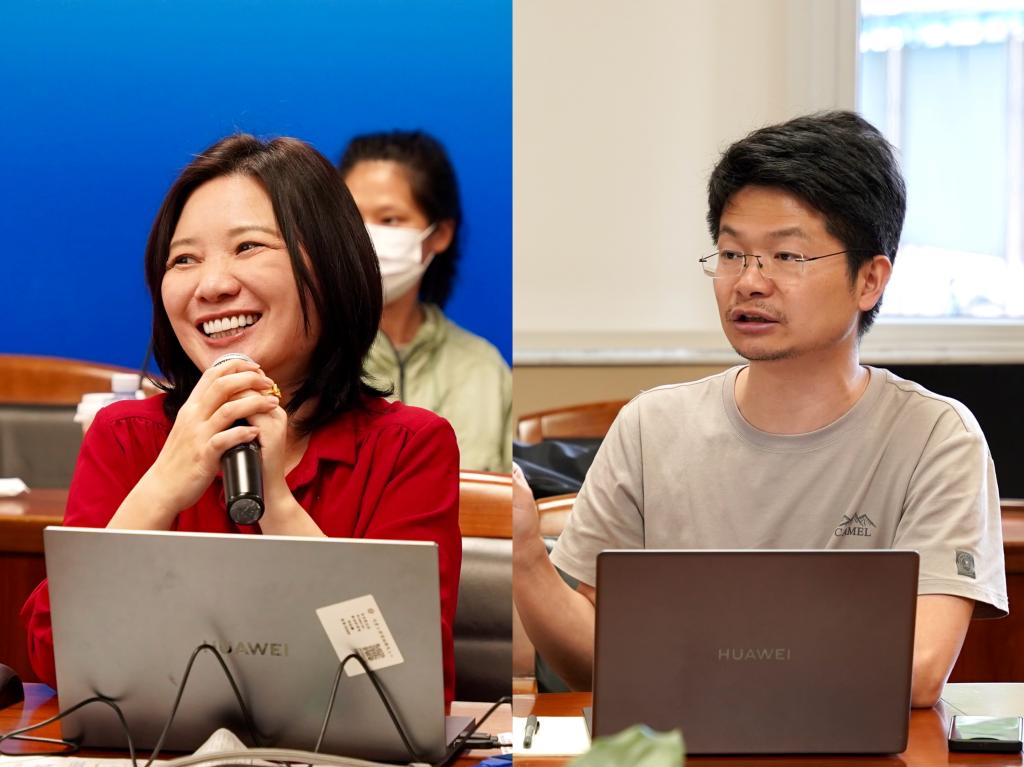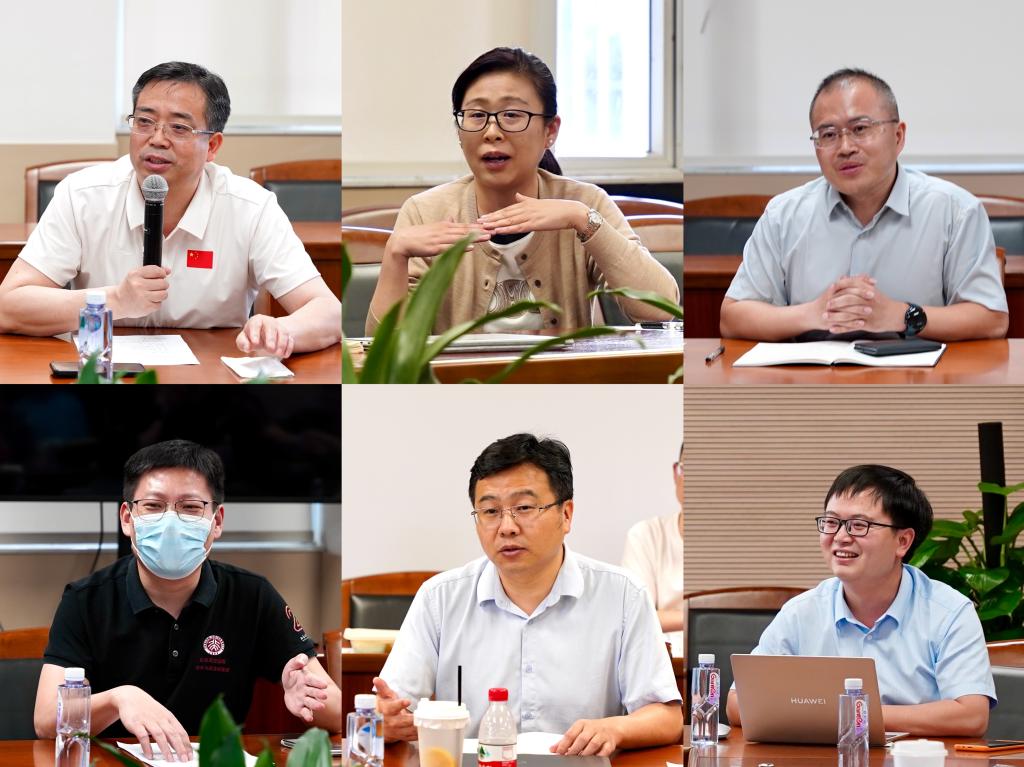To further improve the quality of graduate education, strengthen the faculty mentorship system, and systematically plan the roadmap for scientific research and innovation, the School of Advanced Materials held the fourth session of its Faculty Exchange Forum on April 24, 2025. The event took place in Room H105 at Peking University Shenzhen Graduate School. Mingjie Zhou, Deputy Director of the Academic Affairs Office, was invited to attend, and all faculty members of the School of Advanced Materials participated. The meeting was chaired by Dean Ruqiang Zou.
The first agenda of the forum focused on graduate education management. Deputy Director Zhou delivered a keynote presentation titled “PKU Shenzhen 2025: Graduate Education Management and Faculty Responsibilities.” This presentation offered a systematic interpretation of policies across the entire graduate training process. Starting with the dual role of the Academic Affairs Office in both “management and service,” she elaborated on the three key phases of graduate education: admission, training, and degree conferral.
During the admission phase, Zhou emphasized the principle of “selecting the best candidates through fair competition” and stressed the Graduate School’s priority in allocating enrollment quotas to basic, strategic, and cutting-edge research fields. The school will give preference to training urgently needed talents in key areas for national economic and social development. Faculty members who are academically productive, achieve outstanding research results, lead national-level projects, and demonstrate strong mentorship will receive prioritized support, especially promising young and mid-career scholars.
In terms of the training process, Zhou detailed the full-cycle management from enrollment to graduation. She highlighted the importance of key milestones such as curriculum planning, course study, comprehensive examinations, thesis topic selection, and pre-defense. Furthermore, she called for the establishment of a robust system of regular faculty evaluations and a balanced approach that combines academic guidance with personal care for students.
Regarding degree conferral, Zhou referenced the newly implemented Law of the People's Republic of China on Academic Degrees and PKU’s Guidelines for Degree Conferral and urged rigorous standards in thesis submission and defense. A multi-tiered, comprehensive system for ensuring the quality of both theses and degree awards should be developed.
Zhou also underscored that supervisors are the primary individuals responsible for graduate student development and must fulfill seven core responsibilities, including ideological mentorship and academic supervision. She advocated for the construction of a long-term, integrated training mechanism for advisors and an annual review system for advisor qualifications.
In conclusion, Zhou outlined the vision for PKU’s graduate education system, one that is student-centered, oriented toward the “Four Facings,” focused on quality enhancement, and guided by positive feedback mechanisms.
During the open discussion session, attendees raised practical questions related to enrollment quota allocation, advisor reassignment procedures, and international student training programs. Zhou provided detailed and professional responses to each query.

Mingjie Zhou (left) delivers a policy overview; Jiaxin Zheng (right) moderates the program discussion.
In the second part of the forum, Professor Jiaxin Zheng, Associate Dean of the School of Advanced Materials, led a focused discussion on "Shenzhen Graduate School Planning"—a call for proposals under the Key Basic Research Program of Shenzhen. In response to the Shenzhen Science and Technology Innovation Commission’s efforts to assess fundamental research activities at universities, the School of Advanced Materials has systematically reviewed its strengths, disciplinary layout, and development strategy, and is actively preparing for the application of key projects under the 2025 Natural Science Foundation scheme.
Prof. Zheng provided an in-depth interpretation of the revised proposal guidelines, outlining the new principles and key adjustments. He particularly emphasized the standards for proposal writing and the importance of innovation demonstration. He stressed that project applications should be grounded in major national strategic needs and closely aligned with Shenzhen’s “20+8” strategic emerging and future industry clusters. The School of Advanced Materials is expected to leverage its disciplinary strengths and interdisciplinary advantages in the field of advanced materials.
Prof. Zheng recommended that proposals adopt an international perspective and encouraged a reverse-tracing approach from “industrial demand to scientific questions” to formulate research directions that are both forward-looking and problem-driven.

Faculty Interaction and Exchange Session
This Faculty Exchange Forum provided valuable guidance for School’s educational and research development. By systematically interpreting graduate training policies, the forum clarified the evolving role of faculty advisors in the new era and outlined concrete pathways for enhancing talent cultivation quality. In parallel, the in-depth discussion on the application requirements for Shenzhen’s key scientific research programs significantly improved School’s the organizational level of basic research. Looking ahead, the School of Advanced Materials will continue to uphold a student-centered educational philosophy, promote the high-quality development of advanced talent training, and further strengthen organized research efforts. The School remains being committed to addressing national strategic needs and contributing to regional economic and social development, embodying the responsibility and leadership of Peking University.
